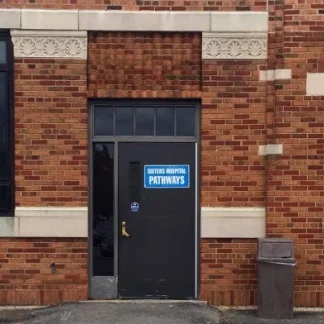DePaul - Halstead Square Community Residence
DePaul - Halstead Square Community Residence provides housing in a service-enric...
Pathways is an outpatient rehab located in Rochester, NY. Pathways specializes in the treatment of substance abuse problems by providing medication-assisted treatment.
Contact us for more information: (585) 424-6580

Connect with Pathways by calling their admissions team directly.
(585) 424-6580 Website Get DirectionsResearch clearly demonstrates that recovery is far more successful and sustainable when loved ones like family members participate in rehab and substance abuse treatment. Genetic factors may be at play when it comes to drug and alcohol addiction, as well as mental health issues. Family dynamics often play a critical role in addiction triggers, and if properly educated, family members can be a strong source of support when it comes to rehabilitation.
Group therapy is any therapeutic work that happens in a group (not one-on-one). There are a number of different group therapy modalities, including support groups, experiential therapy, psycho-education, and more. Group therapy involves treatment as well as processing interaction between group members.
In individual therapy, a patient meets one-on-one with a trained psychologist or counselor. Therapy is a pivotal part of effective substance abuse treatment, as it often covers root causes of addiction, including challenges faced by the patient in their social, family, and work/school life.
Group therapy is any therapeutic work that happens in a group (not one-on-one). There are a number of different group therapy modalities, including support groups, experiential therapy, psycho-education, and more. Group therapy involves treatment as well as processing interaction between group members.
In individual therapy, a patient meets one-on-one with a trained psychologist or counselor. Therapy is a pivotal part of effective substance abuse treatment, as it often covers root causes of addiction, including challenges faced by the patient in their social, family, and work/school life.
In individual therapy, a patient meets one-on-one with a trained psychologist or counselor. Therapy is a pivotal part of effective substance abuse treatment, as it often covers root causes of addiction, including challenges faced by the patient in their social, family, and work/school life.
DePaul - Halstead Square Community Residence provides housing in a service-enric...
Rochester Mental Health Center is a non-profit rehab located in Rochester, New Y...
Catholic Family Center is a faith based social services organization offering su...
East House is a private, nonprofit rehabilitation agency. East House - Boehm Lod...